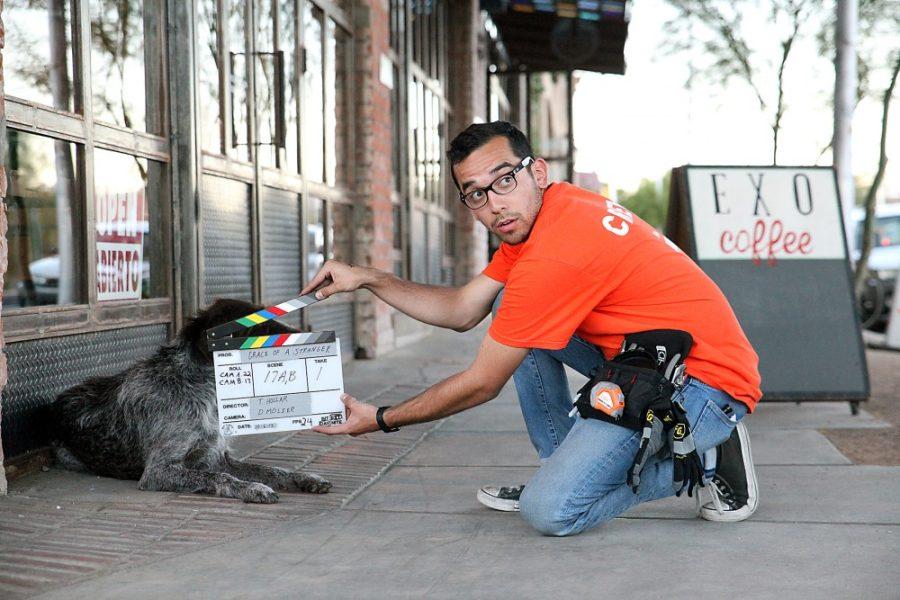In an effort to show how far an act of random kindness can go, a Tucson filmmaker is taking what he learned from a UA lecturer to make a short film about what it means to be kind.
Troy Hollar is the producer, director and co-writer of his first short film, “Grace of a Stranger.”
Hollar first heard the story that inspired his film when driving home earlier this year, listening to a show called “Arizona Spotlight” by Arizona Public Media. The story was read by Erec Toso, a senior lecturer in the writing program of the UA English Department. Toso serves as the program director for the Creative Writing Workshops at the Arizona State Prison, which is supported by the UA Poetry Center.
The stories had been playing on NPR for the past few months and that night, Hollar happened to hear a story written by Aaron Keel, now a former inmate. Keel’s story was written for an assignment that asked students to write about real-life acts of kindness and based on his personal or acquaintance’s experience. The stories were eventually published in the yearly magazine Rain Shadow Review.
“From the moment he started reading it,” Hollar said, “I saw the whole thing in my head as a short film.”
The film follows a man named Aaron who is down on his luck and just trying to get a job interview to make a living for himself. Aaron relies on his skateboard as his main source of transportation, and when it breaks on the way to an interview, it seems that he is at his lowest point. But Aaron doesn’t give up, and when he goes to a skateboard shop, the owner gives him a replacement skateboard out of sheer kindness.
At its core, the film’s message is very basic, Hollar said.
“[It’s] a really simple, beautiful, elegant story about how just a very basic act of kindness that one person can commit can really transform someone’s life,” he said.
Hollar said he has big plans for the film, including submitting and screening it at various film festivals in the U.S. and Europe, as well as in prisons and corrections facilities. Hollar added that he wants to partner with various companies whose products are placed in the film, in hopes of having them endorse the message of kindness with their brand.
Katherine Pew, Hollar’s wife and the film’s co-producer, said that at first she was cautious about seeing her husband dive into the $30,000-budgeted project, considering its financial risks. Hollar helped fund the film and set up a Kickstarter campaign that raised $25,025.
But seeing Hollar’s passion to make the film was what changed her mind, she said.
“[You] make a short film, and if it goes really well, then that’s your calling card to produce feature-length films,” Pew said.
After Hollar filmed an interview with Toso and showed it to his wife, Pew’s investment in the film grew significantly.
“I feel like it’s not just his own little piece of art, but it’s a bigger scope,” she said. “That made me feel that the ripples could be bigger.”
The message of kindness that is the key theme of the film has affected many of the people involved with the project.
Damon Mosier, the film’s director of cinematography, said his work on the film and the message of kindness has allowed him to recognize these acts in his everyday life.
“I’m much more aware … of people’s situations now,” Mosier said.
Gabi Urias, a theatre arts junior, portrays the character of an employee at a sporting goods store. Urias said having the chance to work on a professional film was an entirely different experience from stage acting, and added that the collaborators are really passionate about the film.
“That’s what makes this film really great, that everyone knows the story, loves the story, and they want it to be successful,” Urias said.
Urias added she hopes that people see the world — and other people’s struggles — with a more open mind after seeing the film.
“I think that people [that] view this film, they’ll really open their eyes,” Urias said, “and maybe take into account what … they see when they see homeless people or people who are not as fortunate as ourselves.”
Follow Maggie Driver @Maggie_Driver









